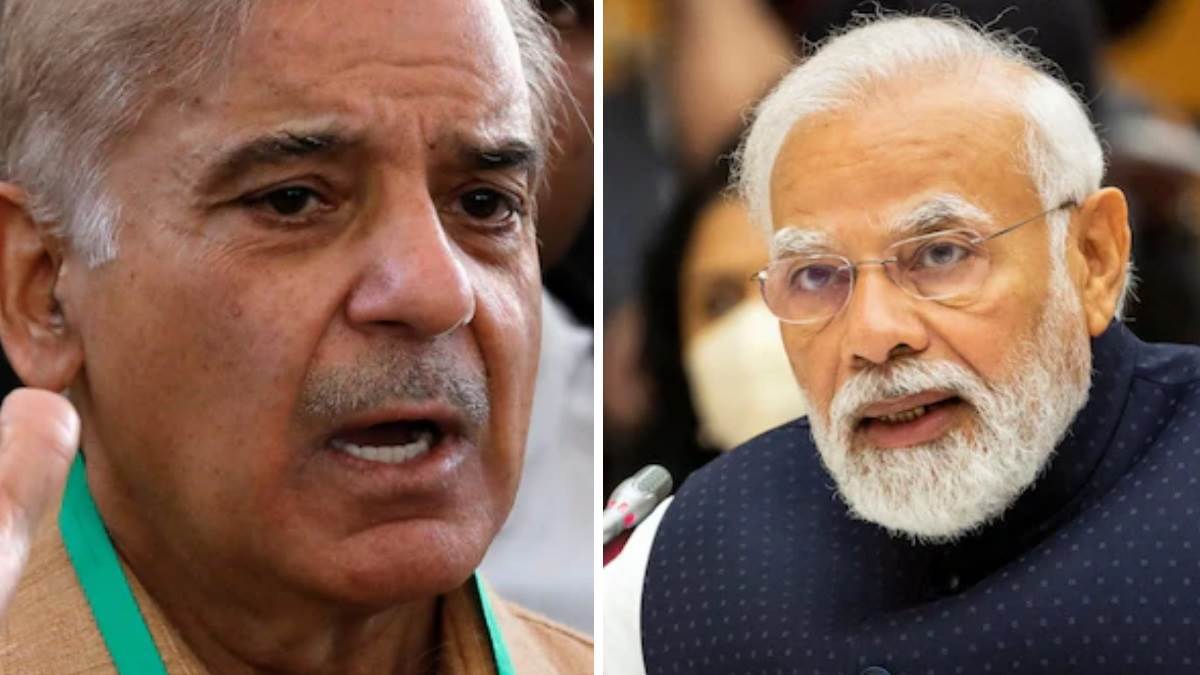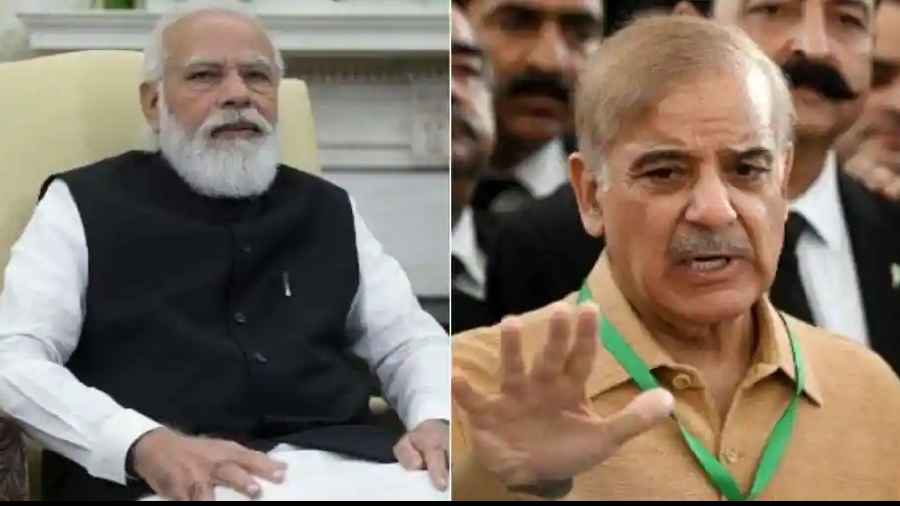Why Modi Government Has No Takers for Pak PM’s Latest Talk Offer

Why Modi Government Has No Takers for Pak PM’s Latest Talk Offer
The statement suggests that Pakistan’s Prime Minister, Shehbaz Sharif, is attempting to use the age-old nuclear flashpoint theory to push India into a dialogue. However, New Delhi is not showing interest in engaging in such talks. The reference to the “nuclear flashpoint theory” likely pertains to the historical tensions between India and Pakistan, particularly in relation to their nuclear capabilities, which have been a long-standing point of concern in the international community.
Additionally, the statement suggests that the Washington-based media employs a standard operating procedure of posing questions to the US State Department on issues that do not directly involve the United States or its people. This tactic is employed as a force multiplier effect to ensure wider reporting of the matter back in the country of concern, in this case, Pakistan, through wire agencies.
The overall implication seems to be that Pakistan is using the nuclear flashpoint narrative to try to compel India into dialogue, while the US media may play a role in amplifying the issue to garner international attention and potentially influence the situation. However, it is emphasized that New Delhi is not showing interest in participating in these talks at the moment.
The statement implies that the US State Department is being approached for comments on various issues happening in India, such as the communal flare-up in Nuh, Haryana, or the recent offer by Pakistan’s Prime Minister Shehbaz Sharif, which may involve the use of the “carrot and nuclear stick” approach.

However, the statement also suggests that the questioners, as well as the US State Department spokesperson answering these queries, may not have adequate knowledge of the specific location of Nuh district in Haryana, India. This remark highlights a perception that the US State Department may be commenting on matters without having a full understanding of the local context or geography of the regions in question.
In essence, the statement seems to criticize the way certain issues are being brought to the attention of the US State Department, and it raises questions about the depth of understanding and context that goes into their responses. It may also hint at the possibility of superficial responses being given without a comprehensive grasp of the issues at hand.
The statement discusses the dynamics of how the US, as a global power, responds to various issues and questions from different countries, including India. It highlights that the US State Department, as a dominant global player, engages with queries from around the world, even on issues that may not directly concern the US or its people. This approach is seen as part of the US’s assertive global dominance, where it chooses to address and answer questions from different countries to exert its influence and ensure that its responses are widely reported through global wire agencies.
The statement contrasts this approach with the hypothetical scenario of Indian or Chinese spokespersons being asked similar questions about gun violence or racial issues in the US or America’s dialogue with countries like Venezuela or Iran. It implies that Indian or Chinese authorities might not be as willing to respond to such questions as the US State Department does.

Furthermore, the statement suggests that despite the close partnership between the US and India, there may be underlying tensions in their relationship. The rise of India as a major player on the global stage might be contested by other powers with their own agendas, leading to challenges in India’s pursuit of its interests.
The example of dialogue between India and Pakistan is cited, where the US spokesperson is repeatedly asked about the need for dialogue between the two countries, even though the situation remains complex and terrorism originating from Pakistan continues to hinder any meaningful progress. The statement implies that despite such challenges, the US spokesperson consistently advocates for direct dialogue between India and Pakistan.
The statement highlights the recent developments in Pakistan-China relations and their implications for India. It mentions that Pakistan’s Prime Minister Shehbaz Sharif’s proposal for dialogue with India comes at a time when the Pakistan Army Chief, Gen Asim Munir, commemorated the founding anniversary of the Chinese People’s Liberation Army (PLA) and reaffirmed the strong bond between the two armies in safeguarding their collective interests. This underscores the close and strategic ties between Pakistan and China, which may have implications for India’s security.
Furthermore, the statement mentions the launch of Phase II of the China-Pakistan Economic Corridor (CPEC) this month. The CPEC is a significant infrastructure project that cuts through areas claimed by India, such as Pakistan-occupied Kashmir (POK) and China-occupied Shaksgam Valley in Ladakh. This development raises concerns about the territorial integrity and security implications for India.

The commemoration of the PLA’s founding anniversary with fanfare in Rawalpindi, Pakistan’s military headquarters, is seen as a clear indication of Pakistan’s status as a client state of China. The close relationship between the two countries may pose a two-front threat to India’s security, considering China’s assertiveness in the region.
The statement emphasizes the Modi government’s stance on the issue of dialogue with Pakistan and its commitment to addressing issues related to terrorism, drugs, and radicalization. It acknowledges that the decolonization of the Indian mind may take time, but the government is firm in its position that talks with Pakistan can only occur when these issues are effectively addressed and when Pakistan stops using them as tools to harm India and its people.
The statement also acknowledges that while the Indian government is aware of questions posed to western governments on India-related issues, it is the state government that is responsible for dealing with the law and order situation in Nuh, Haryana, to prevent any further spread of communal tensions.
The reference to External Affairs Minister S Jaishankar suggests that he may address these issues in due course, indicating that the Indian government is vigilant about responding to such matters at an appropriate time.





